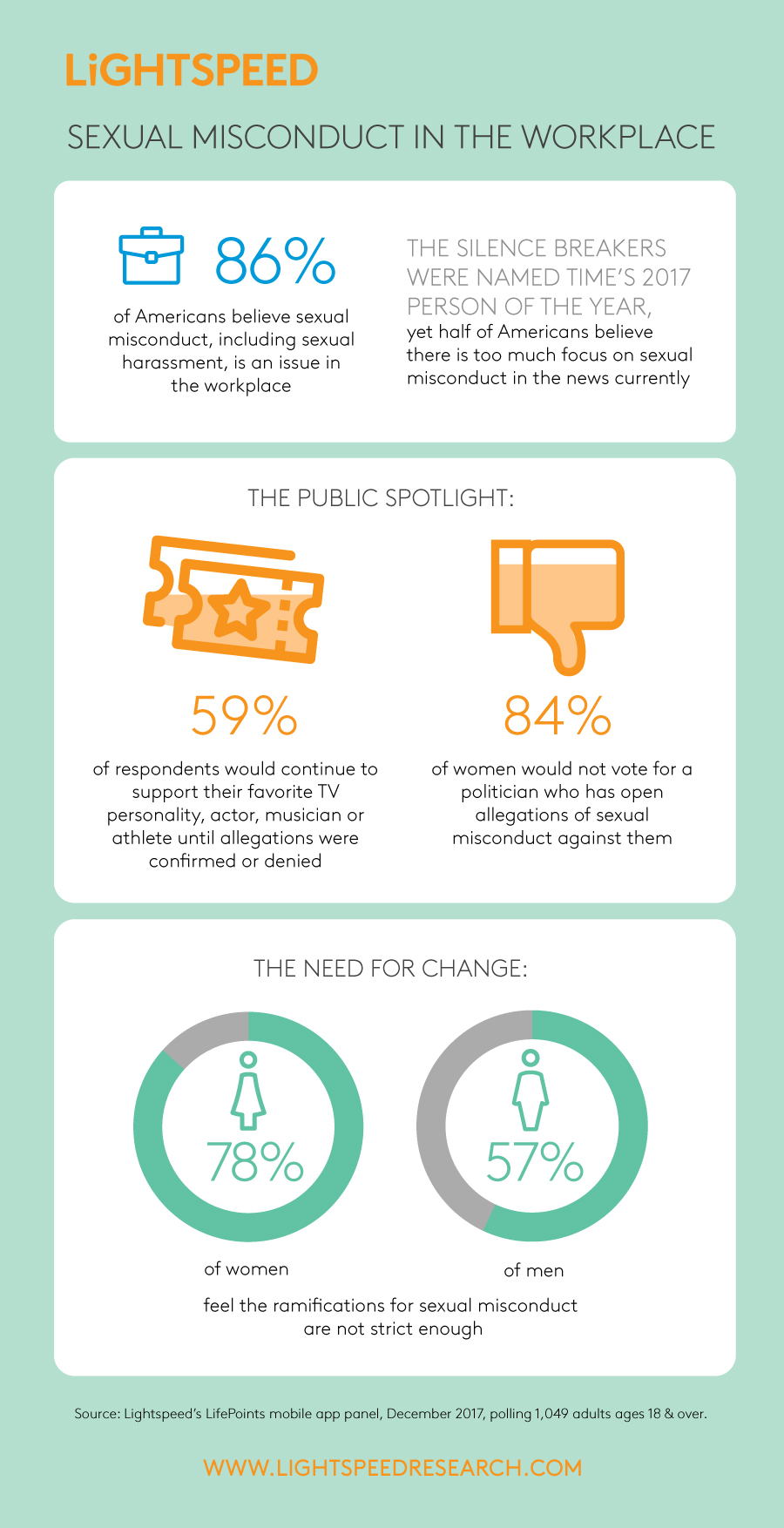Men are failing to grasp what many women perceive as a failure on the part of companies and the legal system to offer adequate protections when it comes to sexual harassment and misconduct.
Kantar's Profiles division recently conducted a survey of more than 1,000 people via its LifePoints mobile app consumer panel to examine how the eruption of accusations of sexual misconduct in the US have impacted their views. Not surprisingly, 86% of those surveyed view workplace harassment and misconduct as a serious and legitimate issue. But perceptions between men and women differ, sometimes significantly, when it comes to how companies and the legal system respond to those allegations.
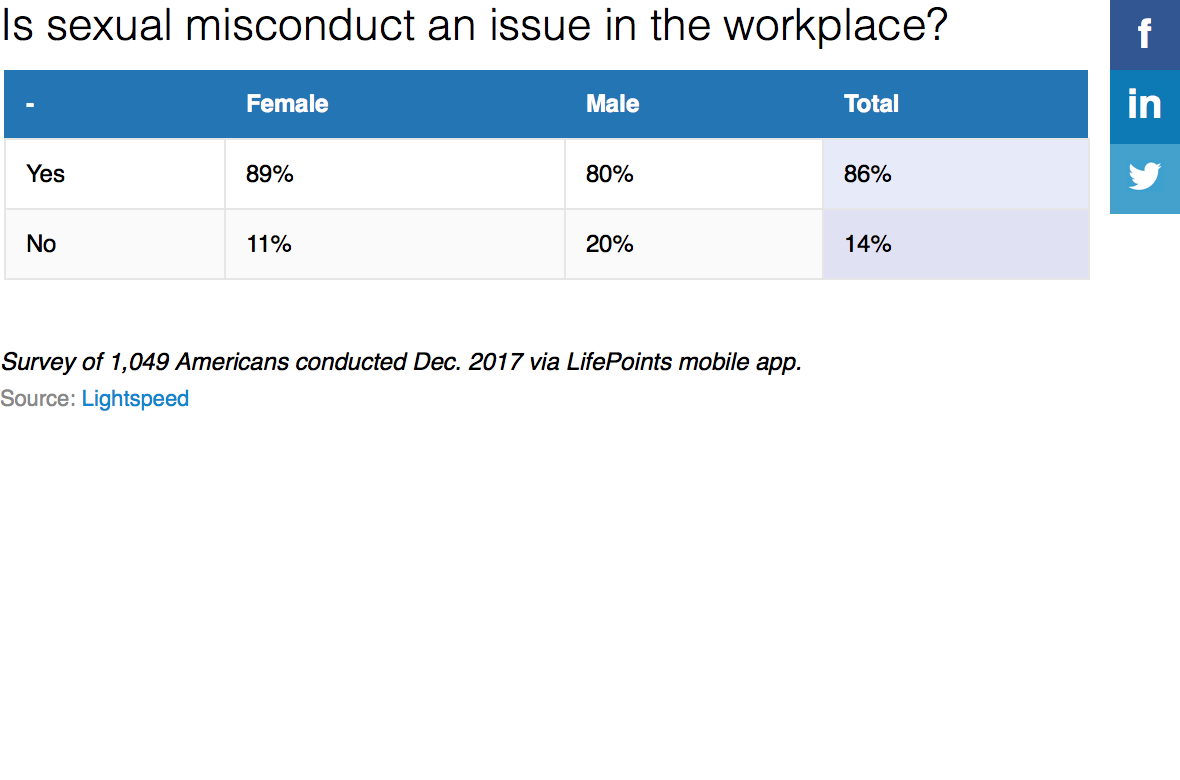
“We’re clearly at a watershed moment when it comes to sexual misconduct in our culture,” said Ryan McConnell, senior vice president at Kantar. “Harvey Weinstein was the match that lit the fuse, but the conditions of our current times – most notably, the increasing empowerment of women, rising awareness of inequality, and the megaphone that social media provides – have been in place for years and are only likely to expand even further in the coming years.”
Women believe men who are engaging in inappropriate behavior have been getting away with their actions, with nearly 80% saying the ramifications for sexual misconduct aren’t harsh enough. In comparison, only 57% of men said the penalties weren’t significant enough.
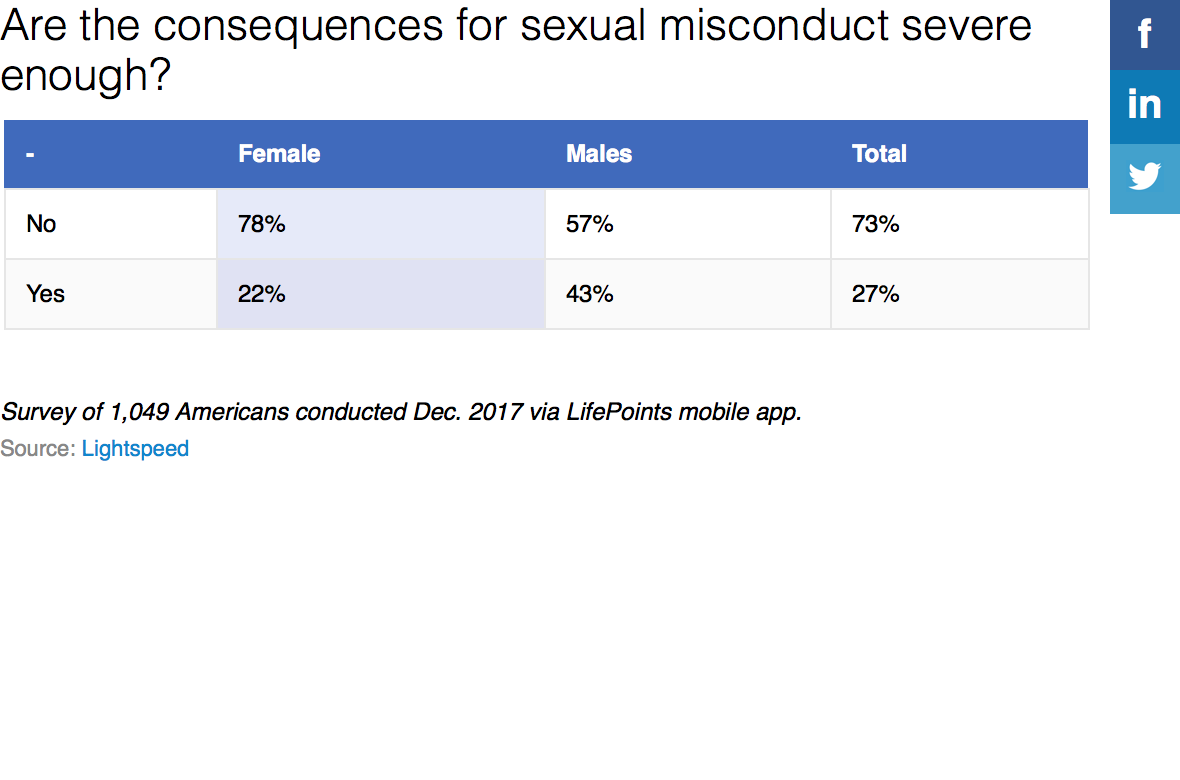
While 80% of men believe sexual misconduct and harassment are issues in the workplace, only 40% of men say a close friend or relative has experienced it at work. Meanwhile, more than a third (37%) of women have personally experienced harassment or misconduct at work and 50% said a close friend or relative has experienced issues on the job.
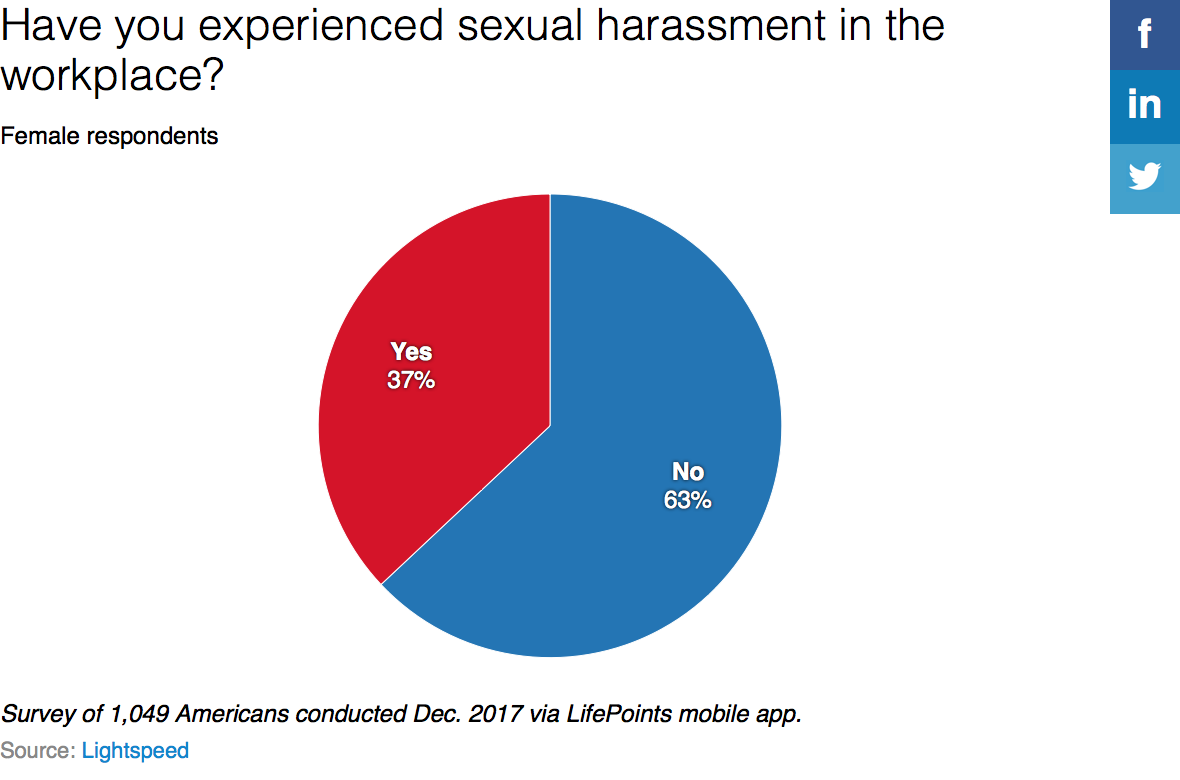
The survey results also showed that focus is likely to shift to how companies have handled these accusations and whether they’ve done enough to provide safe work environments. 75% of respondents said company policies on harassment and sexual conduct did more to protect the company than the individual. That number jumped to 79% among female respondents.
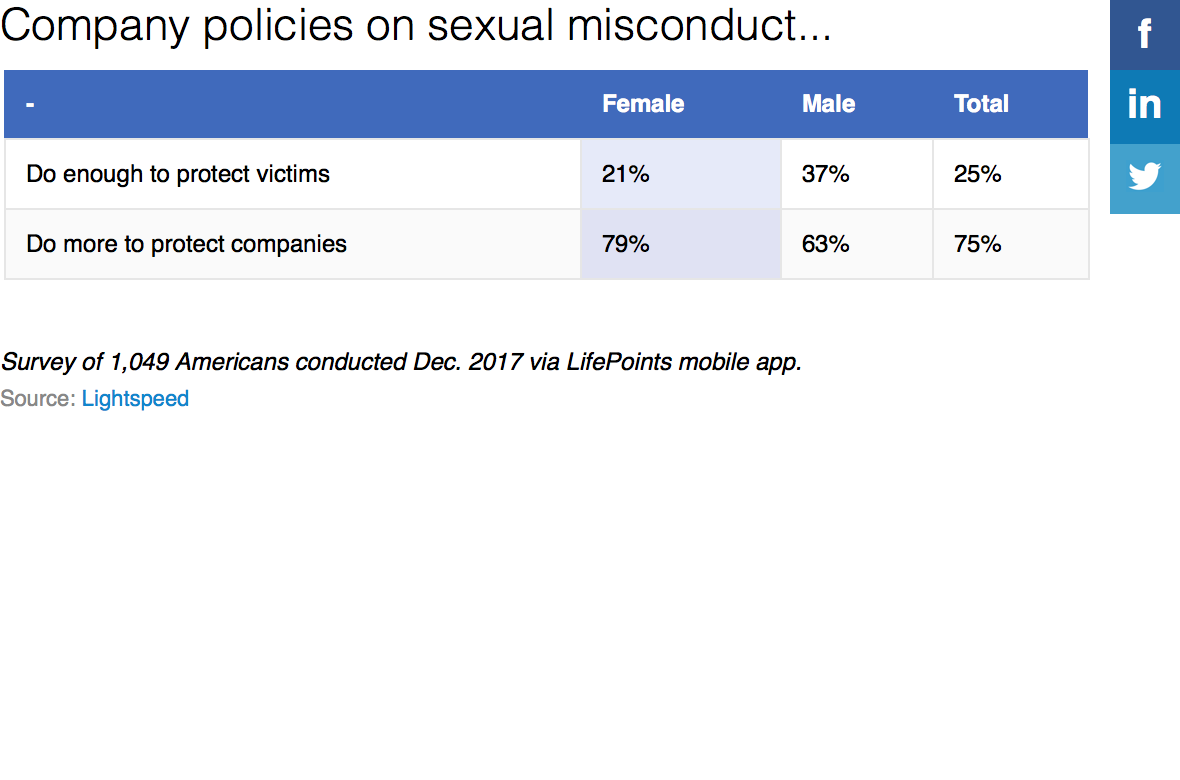
Mainstream media are already diving into this area. Today, the New York Times summarised the situation human resources departments face like this:
“Human resources departments, while officially responsible for fielding employee complaints, also work for a company that faces potential liability — an inherent conflict of interest.”
Whether this will change remains to be seen, but the risk to companies and brands who do not appropriately respond will be high.
